 We are in the time of the Upper Room, the Cenacle. The days between the Ascension of the Lord and Pentecost are liturgically the time when the Blessed Virgin Mary, the Apostles, and the disciples were together in prayer, awaiting the coming of the Holy Spirit. They did not really know what to expect. In fire and wind, the Holy Spirit came, and their lives were transformed forever. The world is also transformed and is transforming. The mission continues in the name of Jesus Christ! We are sent as apostles, as missionary disciples, out into the world. Hiding in a room, in our homes, even in a church is not our call. Instead, we go forth, going where the Holy Spirit moves us to go. We can do amazing things in the name of Jesus Christ. There is no need to wait until someone invites us. No, if we are baptized, and especially if we are confirmed, then we can go forth! We need to recognize, though, that we do not send ourselves. We are sent by Christ, in and through his Church. The community of faith that we call Church is where we go forth from and to which we return. The Church teaches us, forms us, heals and nourishes us through the Sacraments, and sends us on mission. The mission is not ours; it is Christ’s. We, as members of Christ’s Faithful, are called to live his mission until he comes again, just as the Apostles were told to do. In all of this, Mary, Queen of Apostles, is with us as our Mother and Queen. Her feast day is the day before Pentecost. She was the perfect disciple of Christ. St. Vincent Pallotti said of her: “We have most holy Mary, after Jesus Christ, the most perfect model of true apostolic zeal, and of perfect love” (OOCC I, 7). The Decree on the Apostolate of the Laity of the Second Vatican Council echoes this sentiment of Pallotti: “The perfect example of this type of spiritual and apostolic life is the most Blessed Virgin Mary, Queen of Apostles, who while leading the life common to all here on earth, one filled with family concerns and labors, was always intimately united with her Son and in an entirely unique way cooperated in the work of the Savior… All should devoutly venerate her and commend their life and apostolate to her maternal care” (4). Mary, Queen of Apostles, pray for us! May the charity of Christ urge us on! To learn more about Mary, Queen of Apostles, please click here. **This blog was originally published on May 19, 2021.**
0 Comments
“Why are you standing there?” The angels who spoke these words to the astounded disciples now turn to ask us this question today. Perhaps, like the disciples after the Ascension, we too have been stuck looking up at the sky, wondering where Christ is. Our answers to the angels’ question are probably very legitimate. “I am standing here because I lost my job, because of isolation, because of sickness, because of racial and social discord, because of people’s differences, because I don’t know what else to do.” In this passage from today’s Gospel reading, which is the same as this upcoming Sunday’s, I remind myself that at least the disciples were looking up. They at least had their eyes fixed on Christ. That, in and of itself, is a good thing. But what God wants to convey through the angels after Jesus’ Ascension is that just seeing Christ or believing in him is not enough. A relationship with Christ results not in paralysis, but in action. “You will be my witnesses,” Jesus tells his disciples moments before he ascends to the Father. And it is by living out our relationship with Christ as witnesses that the world comes to know him and that our faith comes alive. Witnessing to our faith and accompanying others on their faith journeys shake us out of our paralysis and help us overcome our fear. Jesus is not conveying that hardship, suffering, or unrest will be absent from our lives, but that these no longer have the power to paralyze and trap us. His Resurrection has changed the narrative. And as the Easter season comes to a close, Jesus is calling us not only to believe in him, but to act— to have our lives transformed by the knowledge of the Resurrection and to live boldly and faithfully as a result. At this point, however, the disciples are still focused on earthly things. Just before Jesus’ Ascension, they ask him, “Lord, are you at this time going to restore the kingdom to Israel?” Many of us have similar questions. “Lord, at this time will I get my job promotion? As this time, will my addiction be healed? At this time, will our family be reconciled?” These are valid, important questions of the human heart. Questions that long for answers, for resolutions, for miracles. Jesus’ response seems mystifying and even unrelated: “You will receive power when the Holy Spirit comes upon you, and you will be my witnesses.” While the disciples are still caught focusing on the restoration of Israel and victory over their oppressors, Christ promises more. So much more, in fact, that they are unable to grasp it without the gift of the Holy Spirit, whose coming we celebrate on the Feast of Pentecost on May 23rd. It is why Jesus chose to ascend at this time. He had spent 40 days teaching and opening the Scriptures to his disciples after his Resurrection, but they still could only fathom human goals and objectives. Jesus knows his ministry has come to an end and that a new chapter of the Church will begin with the promised Advocate, the Holy Spirit. After he answers them, Jesus compels his disciples to look up to the heavens as he begins to ascend to the Father. He is physically showing them the needed disposition of their hearts and minds in order to receive the Holy Spirit: they should be considering heavenly things and a heavenly goal. But then, moments later, they are startled to hear: “Why are you standing there looking at the sky?” It can be tempting at times to separate ourselves from the reality of the here and now by over-spiritualizing things or being preoccupied with the past or future. The disciples are left looking up (very understandably), but this looking up and clinging to Jesus in his physical form distracts them from the action to which he has called and chosen them: to be his witnesses to the ends of the earth. This balance between living in the world but not of it can be difficult to grasp and practice. It’s important first to consider where you find yourself today. Are you asking the Lord to restore the kingdom to Israel? Are you standing looking at the sky? Many of us are somewhere in between. Below are 6 practices that help ground me in Christ and deepen my ability to witness to his love:
By considering these practices, it is my hope that, renewed by the Holy Spirit at Pentecost, we will enter into Ordinary Time ready to be Christ’s witnesses to the ends of the earth. Christ calls us each to so much more than simply remain standing. For more resources on living as missionary disciples, please click here. **This blog is a repost from May 13, 2021.** **This image is from: https://young-catholics.com/3256/the-feast-of-the-ascension-year-b/** 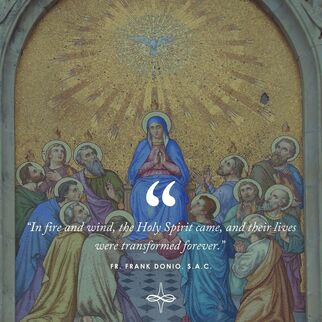 We are in the time of the Upper Room, the Cenacle. The days between the Ascension of the Lord and Pentecost are liturgically the time when the Blessed Virgin Mary, the Apostles, and the disciples were together in prayer, awaiting the coming of the Holy Spirit. They did not really know what to expect. In fire and wind, the Holy Spirit came, and their lives were transformed forever. The world is also transformed and is transforming. The mission continues in the name of Jesus Christ! We are sent as apostles, as missionary disciples, out into the world. Hiding in a room, in our homes, even in a church is not our call. Instead, we go forth, going where the Holy Spirit moves us to go. We can do amazing things in the name of Jesus Christ. There is no need to wait until someone invites us. No, if we are baptized, and especially if we are confirmed, then we can go forth! We need to recognize, though, that we do not send ourselves. We are sent by Christ, in and through his Church. The community of faith that we call Church is where we go forth from and to which we return. The Church teaches us, forms us, heals and nourishes us through the Sacraments, and sends us on mission. The mission is not ours; it is Christ’s. We, as members of Christ’s Faithful, are called to live his mission until he comes again, just as the Apostles were told to do. In all of this, Mary, Queen of Apostles, is with us as our Mother and Queen. Her feast day is the day before Pentecost. She was the perfect disciple of Christ. St. Vincent Pallotti said of her: “We have most holy Mary, after Jesus Christ, the most perfect model of true apostolic zeal, and of perfect love” (OOCC I, 7). The Decree on the Apostolate of the Laity of the Second Vatican Council echoes this sentiment of Pallotti: “The perfect example of this type of spiritual and apostolic life is the most Blessed Virgin Mary, Queen of Apostles, who while leading the life common to all here on earth, one filled with family concerns and labors, was always intimately united with her Son and in an entirely unique way cooperated in the work of the Savior… All should devoutly venerate her and commend their life and apostolate to her maternal care” (4). Mary, Queen of Apostles, pray for us! May the charity of Christ urge us on! To learn more about Mary, Queen of Apostles, please click here.
“Why are you standing there?” The angels who spoke these words to the astounded disciples now turn to ask us this question today. Perhaps, like the disciples after the Ascension, we too have been stuck looking up at the sky, wondering where Christ is. Our answers to the angels’ question are probably very legitimate. “I am standing here because of the pandemic, because I lost my job, because of isolation, because of sickness, because of racial discord, because of people’s differences, because I don’t know what else to do.” In this passage from today’s Gospel reading, which is the same as this upcoming Sunday’s, I remind myself that at least the disciples were looking up. They at least had their eyes fixed on Christ. That, in and of itself, is a good thing. But what God wants to convey through the angels after Jesus’ Ascension is that just seeing Christ or believing in him is not enough. A relationship with Christ results not in paralysis, but in action. “You will be my witnesses,” Jesus tells his disciples moments before he ascends to the Father. And it is by living out our relationship with Christ as witnesses that the world comes to know him and that our faith comes alive. Witnessing to our faith and accompanying others on their faith journeys shake us out of our paralysis and help us overcome our fear. Jesus is not conveying that hardship, suffering, or unrest will be absent from our lives, but that these no longer have the power to paralyze and trap us. His Resurrection has changed the narrative. And as the Easter season comes to a close, Jesus is calling us not only to believe in him, but to act— to have our lives transformed by the knowledge of the Resurrection and to live boldly and faithfully as a result. At this point, however, the disciples are still focused on earthly things. Just before Jesus’ Ascension, they ask him, “Lord, are you at this time going to restore the kingdom to Israel?” Many of us have similar questions. “Lord, at this time will I get my job promotion? As this time, will my addiction be healed? At this time, will the pandemic end? At this time, will our family be reconciled?” These are valid, important questions of the human heart. Questions that long for answers, for resolutions, for miracles. Jesus’ response seems mystifying and even unrelated: “You will receive power when the Holy Spirit comes upon you, and you will be my witnesses.” While the disciples are still caught focusing on the restoration of Israel and victory over their oppressors, Christ promises more. So much more, in fact, that they are unable to grasp it without the gift of the Holy Spirit, whose coming we celebrate on the Feast of Pentecost on May 23rd. It is why Jesus chose to ascend at this time. He had spent 40 days teaching and opening the Scriptures to his disciples after his Resurrection, but they still could only fathom human goals and objectives. Jesus knows his ministry has come to an end and that a new chapter of the Church will begin with the promised Advocate, the Holy Spirit. After he answers them, Jesus compels his disciples to look up to the heavens as he begins to ascend to the Father. He is physically showing them the needed disposition of their hearts and minds in order to receive the Holy Spirit: they should be considering heavenly things and a heavenly goal. But then, moments later, they are startled to hear: “Why are you standing there looking at the sky?” It can be tempting at times to separate ourselves from the reality of the here and now by over-spiritualizing things or being preoccupied with the past or future. The disciples are left looking up (very understandably), but this looking up and clinging to Jesus in his physical form distracts them from the action to which he has called and chosen them: to be his witnesses to the ends of the earth. This balance between living in the world but not of it can be difficult to grasp and practice. It’s important first to consider where you find yourself today. Are you asking the Lord to restore the kingdom to Israel? Are you standing looking at the sky? Many of us are somewhere in between. Below are 6 practices that help ground me in Christ and deepen my ability to witness to his love:
By considering these practices, it is my hope that, renewed by the Holy Spirit at Pentecost, we will enter into Ordinary Time ready to be Christ’s witnesses to the ends of the earth. Christ calls us each to so much more than simply remain standing. For more resources on living as missionary disciples, please click here. It seems that each day we check the news to discover that another politician, producer, actor, or celebrity figure is being exposed for scandal or abuse. Many of those who have for years been hailed as the main influencers of public opinion, policy, and taste have in a stunningly short span of time lost support or credibility. Many of those who were on top of the world have been, we could say, deflated and dethroned. I have been pondering this lately as the Church prepares to celebrate the Solemnity of the Ascension of the Lord. Each Sunday in the Nicene Creed, we profess Christ’s ascension, “He ascended into heaven and is seated at the right hand of the Father.” The ascension is recounted at the beginning of the Acts of the Apostles (Acts 1:6-12). Theologically, we do not envision Jesus ascending like a balloon into the sky, but a king ascending a throne. The Feast of the Ascension celebrates the exaltation and enthronement of Jesus as King and Messiah at the right hand of God the Father in heaven. As many of us may be scientifically literate and democratically-minded citizens of the twenty-first century, we may think all this talk of thrones and kings and heaven may seem like it belongs to a world that has long passed away. But if our recent headlines have proven anything, what has not passed away is the perennial pursuit of power and our tendency to underestimate our willingness to use it in potentially harmful and self-aggrandizing ways. Power in and of itself is not an evil thing, and watching people fall publicly is not a cause for celebration. I think instead the present reality invites us to pause and reflect on—in light of God’s reality—the pursuit and exercise of power both in society and in our own lives. In truth, power is not something that belongs only to the powerful. Power exists across any human relationship: husband and wife, parent and child, teacher and student, boss and employee, and the list is endless. We are influenced vertically by our superiors and horizontally by our peers. Ideally, we work together to achieve the common good and common goals by sharing and exercising power in the right doses and ways. But I think if we’re honest, we all have our own way of being out of balance, tipping the scales. So, what does this all have to do with Jesus, who we call the All-Powerful One? As exalted King and Messiah, Jesus overthrows the love of power with the power of love. The Ascension is not a power grab that Jesus will use to control people and outcomes. Rather, we hear Jesus tell the disciples that once he has taken his seat on God’s throne, “you will receive power when the holy Spirit comes upon you, and you will be my witnesses in Jerusalem, throughout Judea and Samaria, and to the ends of the earth” (Acts 1:8). As disciples, we are not separated from Christ by a glass ceiling. Yet as disciples, we have to be careful where and how we exercise this power given to us in the name of Jesus. One of the images in Scripture of the Holy Spirit is fire. It is a great metaphor for power. Our stewardship of God’s power can bring light and warmth, yet it can also burn if used irresponsibly. I suspect today that much of what compromises our evangelizing message of Jesus’s kingship stems from the ways Christians have abused earthly power in the name of God. The Gospel and St. Paul preach a radically different alternative: the conviction that our human exercise of power more fully manifests Christ when it is surrendered than when it is wielded. So, I propose instead: What happens when we dare to profess Jesus enthroned and exalted, to receive the power of his Holy Spirit, and then lay it down in the service of the Gospel? Question for Reflection: How is Christ’s example of kingship and power different from what we see in the world? Are you tired of the feasting? We are at the tail end of feasting after the Easter season with the celebration of the Solemnity of Corpus Christi last Sunday. We experienced the 50 days of Easter, the Solemnity of the Ascension of the Lord, Pentecost, the Solemnity of the Holy Trinity, and finally, the Solemnity of Corpus Christi. In my family, we have partaken in a fair share of feasting on treats, and I am almost ready for a period of fasting again. The transition from the Easter season into Ordinary Time can lead to a misunderstanding of what the Church is calling us to during this liturgical season. It is easy to see Ordinary Time as boring or as a time for laziness, but if we look at the liturgical calendar and journey along with the Apostles in the Scriptures, we can see that it is just the opposite. Reflecting back on the Scriptures read during Lent and the Triduum, we see the disciples’ confusion about what Jesus was preparing them for. He warned them often that He had to suffer, die, and rise, and yet they were still in hiding and unsure of their mission after the crucifixion and Resurrection. Scripture states that they were locked in the Upper Room in fear of the Jews after Christ’s death and then that they were left “looking intently at the sky” after Christ’s Ascension. It is not until Pentecost, when the Holy Spirit descends upon the disciples, that the gift of understanding is given to them and they are able to go forth and spread the Gospel message. In celebrating the Solemnities of the Ascension and Pentecost after Easter Sunday, we come to understand our role as Christians on mission. We are reminded that we too are equipped with the Holy Spirit for the call to go out to all the nations and proclaim the Good News, baptizing in the name of the Trinity. We next celebrate the Solemnity of the Holy Trinity, a day to contemplate that the Holy Trinity is relationship itself, and we are invited into that relational exchange of love among Father, Son and Holy Spirit. As the Catechism explains, "By the grace of Baptism ‘in the name of the Father and of the Son and of the Holy Spirit,’ we are called to share in the life of the Blessed Trinity” (CCC 264). This Solemnity invites us to ponder the vastness and majesty of God in three persons and His great love for His creation. Finally, the Church celebrates the Solemnity of Corpus Christi (Latin for “Body of Christ”). Christ, after the Ascension, remains with us in the bread and wine transformed into His Body and Blood during the celebration of the Mass. This Solemnity focuses our attention and hearts on the greatest gift to the Church: the Body, Blood, Soul and Divinity of our Lord in the Holy Eucharist. Together with the celebration of the other feasts after Easter Sunday, the celebration of Corpus Christi is a moment of grace given to us today that propels us into this season of Ordinary Time. If we look at the calendar, the Church has been preparing our hearts to enter into this celebration of Corpus Christi. We needed Jesus to establish the Eucharist (Holy Thursday), to suffer, die and rise (Triduum), to return to the Father (Ascension), and to send the Church an outpouring of understanding for Her mission through the Holy Spirit (Pentecost). As a result, we can ponder and enter into the life of the Holy Trinity (Solemnity of Holy Trinity). All of these feasts prepare the Church for the Solemnity of Corpus Christi and for our journey into Ordinary Time. The Holy Eucharist is the strength for our journey in the ordinary. The Body and Blood of Jesus assists us in following the will of God as we receive God Himself. The Solemnity of Corpus Christi can be celebrated with hope that Jesus is with us in this Holy Sacrament, and the Church is calling us to continued growth in Ordinary Time. Questions for Reflection: How can you use Ordinary Time in order to grow in your faith? What graces from Lent and Easter can help propel you into Ordinary Time? Dear future volunteer,
Each time I revisit the Ascension stories in the Gospels, I find numerous points that relate to mission and service. Throughout my own time on mission in Jamaica, I see similarities between these verses and my challenges and blessings in a daily life of service. I hope to offer encouragement to you, future volunteer, as you research and discern the many opportunities for service available to you. “He rebuked them for their unbelief and hardness of heart…” (Mark 16:14) My strongest prompt to mission came as I reflected on a painting of St. Francis gazing at the cross and being told to rebuild the church. The question written with the painting asked, “Am I willing to do God’s will?” For many years, I have read, heard, and tried to practice in small ways, the example of Jesus doing the “will of my Father,” and loving others as God loves me. Now I felt that God had put the nudge toward mission into my heart. Two years of overseas mission service seemed like a very big step into the unknown but I had the stories of Francis and many others as examples, and I felt that if I said “Yes,” God would enable me to shed my worries and, thus, soften my heart and make more room for his Grace! Future volunteer, God will do the same for you. Mission has taught me to expect the unexpected and to trust in God’s plan. Though I was open to other ministries, there was a pretty high expectation at my future mission site that I would be helping in schools, and that is exactly where I found myself. My first classroom was noisy, chaotic, cramped, and undersupplied, but I found that I had the most difficulty countering the common teaching approaches, which I perceived as overly physical and sometimes belligerent. During the first days and weeks, it was very easy for me to get caught up in the prevalent practice of shouting, derision, and physically putting someone into their chair or the corner. I didn’t like myself doing that. Continually, readings in the Franciscan prayer book kept telling me that Peace IS the path. One time, a student told me that he didn’t like me putting him into his seat. The next day, I got down to his eye level and apologized to him. He listened, we hugged, and I felt that I was on my way toward a better practice. Future volunteer, are you ready to be stretched and molded according to God’s will? “The eleven disciples went to Galilee, to the mountain to which Jesus had ordered them.” (Matthew 28:16) I always notice the number eleven here; it is a particular mention to the fact that someone is missing. Dear future volunteer, are you worried about leaving your loved ones to do service? There are times when I am missing someone familiar from my table. It is different people at different times and my heart misses them. The last phrase—”to which Jesus had ordered them”—strikes me as being particularly relevant to mission and service. What are Jesus’ orders? Feed the hungry, clothe the naked, go and make disciples of all nations. Mission is an opportunity to do just that. My heart believes that God does and will take care of me while on mission, and the Almighty and Universal God is also able to care for my loved ones even when they are on a different continent! “He led them out to Bethany...They did him homage and then returned to Jerusalem with great joy and they were continually in the temple praising God.” (Luke 24:50-53) Dear future volunteer, as you discern your service, there is great help to be found in being “continually in the temple praising God.” I couldn’t have made my decision for mission without some serious prayer and reflection. The question of “Is this really God’s will?” was a focus for my Lenten prayer before I began my time of service. Contemplative silence and guidance from trusted friends helped me to find peace in the answer to that prayer. This ending of Luke’s Gospel account shows the disciples returning to the Temple, and I have reflected on how this seems to be the strength they needed before departing to their ministries that are recounted in Acts. “Jesus came and stood in their midst and said, ‘Peace be with you.’” (John 20:19; 21:22) Ahhh, my prayers were voiced and answered; my heart found peace, and my decision for mission was made. In John’s Gospel, Jesus breathes the Holy Spirit upon the disciples. In the next chapter, I see another of my tendencies: my desire to get a quick summation of God’s plan. Peter wants to know about the future for the Beloved disciple…(nudge, nudge, wink, wink) and he is gently reminded by Jesus, “What concern is it of yours? You follow me.” The disciples encounter the resurrected Jesus in their everyday lives while fishing, walking, eating, and interacting with others. As my mission time unfolds, I also see Jesus in everyday life. I see him in the faith voiced in the locals that I meet and in new forms of singing and praise. I feel discouragement at the discrepancy of incomes and lack of faith just as Jesus felt while gazing at Jerusalem. I marvel to see God’s hand in creation as I walk by household gardens or explore the hills. And, like the disciples, I see Jesus working through me, giving me a stronger dependence on prayer as I realize that I will not be able to fix systemic problems, and a stronger sense of humility as I realize that I am an outsider here, but I truly have been sent by God. Jesus ascended and asked his disciples to go and teach all nations. Mission service makes us a viable part of that eternal and mystical plan. Jesus may have disappeared into the clouds, but we are able to make his presence real today. I really think that He was having a good chuckle as He ascended. He knew how much mission would change us! Dear future volunteer, are you ready to be changed? To learn more about service opportunities through Franciscan Mission Service, please click here. This reflection was originally published on the Catholic Volunteer Network Blog and was posted with permission. Janice Smullen is a recently returned missioner with Franciscan Mission Service. She most recently served in Kingston, Jamaica. A second wind is often an unexpected gift. Whether it is discovered during a run, study session, or some other activity demanding intense focus and effort, what at first seems daunting and impossible to achieve suddenly becomes possible thanks to newfound strength and endurance. A second wind, while surely appreciated physically or mentally, can also be applied spiritually. As the Church celebrates her birthday on Pentecost Sunday, we can reflect on the incredible gift of the Holy Spirit who was sent by God Himself to provide the fledgling Christian faith a much needed second wind as apostles prepared to bring the Good News of Christ to the entire world.
One of the Gospel readings for Pentecost details our Lord’s promise to send the Holy Spirit to His disciples. In an earlier related chapter from John’s gospel, Christ Himself walks with the disciples and predicts His own Passion. He assures the disciples that they will not be abandoned as orphans, but will share in the very life of the Most Holy Trinity (John 14:15-31)! The consolation and comfort Jesus brought to those gathered in the Upper Room after His death and resurrection surely reminded them of this though He ordered them to not leave Jerusalem until “the promise of the Father” had been sent (John 20:19-23). It would not be until after Christ’s ascension, that the Holy Spirit would be sent upon the disciples and so enable them to carry out the Great Commission of our Lord, “Go therefore and make disciples of all nations, baptizing them in the name of the Father and of the Son and of the Holy Spirit, and teaching them to obey everything that I have commanded you.” While Christ had sent out the disciples to evangelize before (see Luke 10:1-20, cf. Matthew 10), these efforts were limited to “the lost sheep of the house of Israel.” Proselytizing the rest of the world would take place after the rejection of our Lord and would require grace to sustain the disciples through this incredible evangelical endeavor. Today, the faithful are not only entrusted with this mission, but have also been baptized and confirmed with the same Holy Spirit as was promised to Christ’s first followers! The Holy Spirit is truly God and is inseparable from the Father and the Son. Though Christ is seen, it is the Spirit who reveals Him. Thus, both are on a “joint mission” to reveal the visible image of the invisible God (see CCC 689). The Holy Spirit invites us to better know the Father and Son. Each person of the Trinity more fully deepens our understanding of God. As the Catechism says: Now God’s Spirit, who reveals God, makes known to us Christ, his Word, his living Utterance, but the Spirit does not speak of himself. The Spirit who “has spoken through the prophets” makes us hear the Father’s Word, but we do not hear the Spirit himself. We know him only in the movement by which he reveals the Word to us and disposes us to welcome him in faith. The Spirit of truth who “unveils” Christ to us “will not speak on his own.” (CCC 687) The Holy Spirit continuously reveals Christ to us when we make an effort to listen. Similarly, when we recognize and cooperate with the Holy Spirit dwelling within us, we are better able to contemplate Christ’s teachings and the great Mysteries of Faith. When we face discouragement or are unsure of a decision we must make, we are in similar circumstances to those waiting in the Upper Room. The gifts of the Holy Spirit strengthen our faith and helps us to judge our situations prudently. The courage to continue Christ’s mission and not be defeated by discouragement or rejection is not only an incredible witness to the Church, but also a recognition that the Holy Spirit continues to work among us wherever we are in our journey of faith! Just as the Holy Spirit descended upon our Lord at His baptism to start His mission on earth, so too did Christ send the Holy Spirit upon the disciples in the Upper Room as they began their ministry. Like the disciples, let us dare to be open to the Holy Spirit’s activity in our daily lives as a much needed second wind as we continue our Lord’s work so that at the end of our days, we may hear spoken to us, “Well done, my good and faithful servant ... Come, share your master’s joy.” Question for Reflection: Can you recall a moment when the Holy Spirit gave you the courage to continue through a difficult trial? We celebrate Pentecost on June 8th, 50 days after Easter, to commemorate the Holy Spirit’s descent on Christ’s disciples after His Ascension. We are, in many ways, celebrating the birthday [E1] of the Church and our individual commitments to God.
The Holy Spirit empowers us to share our faith, to have the ability to open our hearts in understanding one another and God’s message. Through the gifts of the Holy Spirit (wisdom, understanding, counsel, knowledge, fortitude, piety and fear of the Lord), we become fully alive in our personal relationship with God so we can give better witness to His message. The Catechism of the Catholic Church says, “…the Church is sent to announce, bear witness, make present, and spread the mystery of the communion of the Holy Trinity” (CCC 738). We can use Pentecost as an opportunity to make our faith our own while sharing God’s word. By utilizing our individual talents and volunteering in some aspect of our church, we strengthen our faith and build community. I remember wanting to be an altar server after receiving my first Holy Communion in second grade. I began altar serving and continued to do so until I received Confirmation. Serving during the Mass allowed me, as a young girl, to better understand my Catholic faith. My parents remember me saying how I enjoyed altar serving because I had to pay attention (and stay awake) during 8 a.m. Sunday Mass. Assisting the priest on the altar, I began to fully understand and celebrate the Liturgy of the Word and Liturgy of the Eucharist every Sunday. I attended Catholic school and was able to make connections between Religion class and weekly Mass by serving during church service. Once confirmed, I continued to volunteer in my church as a lector as well as taught religion education to grade school children. Actively participating in my church allowed me to fully engage in my Catholic faith and grow spiritually. No matter our age, the Catholic Church encourages us to be active participants in Mass and in our Church. Through the work of the Holy Spirit, we can come to discover where the Church needs us and how we can best share the time, talent, and treasure God has given us. My parish hosts a ministry fair each year, which gives parishioners an opportunity to see other ministries within the Church and where we can best serve God and our community. Pentecost allows us to renew ourselves to the Holy Spirit. Pope Francis asks us in his daily Mass homily on May 19th this year to question ourselves: “What kind of heart do we have? … Is my heart fixed upon everyday gods or is it a heart fixed on the Holy Spirit?” It is easy for us to get wrapped up in life’s habitual tasks at home, work, with family, colleagues, etc. Pope Francis encourages us that the Holy Spirit “gives us strength, gives us the steadiness to be able to move forward in life in the midst of many events.” Dana Edwards is a recent graduate of the University of Florida. She currently resides in Tallahassee, Florida where she volunteers as a lector and with communication outreach at her local parish, Good Shepherd Catholic Church. “He said to them: ‘… you will receive power when the Holy Spirit comes on you; and you will be my witnesses in Jerusalem, and in all Judea and Samaria, and to the ends of the earth.’ After he said this, he was taken up before their very eyes, and a cloud hid him from their sight. They were looking intently up into the sky as he was going, when suddenly two men dressed in white stood beside them. ‘Men of Galilee,’ they said, ‘why do you stand here looking into the sky? This same Jesus, who has been taken from you into heaven, will come back in the same way you have seen him go into heaven’” (Acts 1:7-11). Forty days ago, we celebrated the miraculous Resurrection of Jesus from the dead and joyful the start of the Easter season. Finally, after millennia of prophecies and expectation, the promise that humanity would be redeemed and restored in its relationship with God was fulfilled. Now Christ had risen in glory and conquered death by His Passion, allowing humanity to once again be united with its loving Creator (c.f. 2 Peter 1:4). This reunification of the disciples and their beloved Teacher was indeed a cause for celebration! What intense feelings of love and wonder must have resounded in the apostles’ hearts after their Master, Teacher, and Savior had been cruelly put to death only a few days ago. They believed that Jesus’ return meant that He would now “restore the kingdom to Israel” to finish His earthly ministry (Acts 1:6). “Not so, not yet,” Jesus corrects them (c.f. CCC 672). Instead, it was now time for Him to join the Father in Heaven since He had accomplished the Mission of atonement that He had been sent to earth for on the Cross (c.f. John 19:30). With that, Jesus was taken up before His followers into Glory. While they were still watching, whether out of wonder, awe, confusion, or fear as what to do next (perceptibly without Jesus), two heavenly messengers appear and urge the disciples not to stand there, looking up. Jesus would come again, they promised. Meanwhile, there was a mission to undertake; they were to go and wait for the Spirit, Who would help them take the next steps towards completing Jesus’ final instructions, which were, as St. Pope John Paul II put it, “the faithful expression of the Father’s will.” Before He was taken up, Jesus said to the disciples, “All authority in heaven and on earth has been given to me. Therefore go and make disciples of all nations, baptizing them in the name of the Father and of the Son and of the Holy Spirit, and teaching them to obey everything I have commanded you” (Matthew 28:18-20). Christ was planning something bigger than establishing a temporal kingdom on earth, as the Jews commonly thought their awaited Messiah would bring. The Apostles, moreover, were instructed to teach— to proclaim the Good News to the whole world. And they were to baptize in the name of the Father, and of the Son, and of the Holy Spirit. Like Jesus, they were to speak explicitly about the Kingdom of God and about salvation. The Apostles were to give witness to Christ to the ends of the earth. The early Church clearly understood these instructions and the missionary era began. And everybody knew that this missionary era could never end until the same Jesus, who went up to heaven, would come back again. (St. John Paul II, “Homily on the Solemnity of the Ascension of Our Lord,” May 24, 1979) We, too, in a sense, can stand with the apostles, looking heavenward to that place where our Lord ascended. We, too, can experience that intense wonder deep within each of us which transforms fear and tragedy, insecurity and tension into a peaceful certainty that floods the heart with loving warmth from God. From this, the same question posed to the disciples nearly two thousand years ago is asked of each of us even today: why do you stand looking up? The Church’s mission has always been that of the Great Commission, to spread the glorious, joyful, and redemptive news of Christ’s rising from the dead (c.f. John 3:16). As Saint Augustine testified, we are the Church and are commanded to accept this mission and not stand idly by in either amazement or apathy! Certainly, Holy Mother Church’s evangelization has endured obstacles, dogmatic disputes, and other setbacks over the centuries in bringing the Good News to the ends of the earth. No matter the challenge, the Church always pulls through since she has been founded by Christ Himself with the promise that “the gates of the netherworld shall not prevail against it” (Matthew 16:18). As the disciples and the Blessed Mother would experience on Pentecost Sunday, it is the Holy Spirit, the gift of the Father, Who is the source of the Church’s strength. It is He Who guides the Church in the way of Truth in the spreading of the Gospel, doing so through the power of God and not by means of the imperfect wisdom or strength of man. After having undergone the humiliation of His passion and death, Jesus took His place at the right-hand of God; He took His place with His eternal Father. But He also entered heaven as our Head whereupon, in the expression of Leo the Great, the glory of the Head became the hope of the body… our nature is with God in Christ. And as man, the Lord Jesus lives forever to intercede for us with Father. At the same time, from His throne of glory, Jesus sends out to the whole Church a message of hope and a call to holiness. Because of Christ’s merits, because of His intercession with the Father, we are able to attain justice and holiness of life, in him… The power of the glorified Christ, the beloved Son of the eternal Father, is superabundant, to sustain each of us and all of us in the fidelity of our dedication to God’s Kingdom. The efficacy of Christ’s Ascension touches all us in the concrete reality of our daily lives. Because of this mystery it is the vocation of the whole Church to wait in joyful hope for the coming of our Savior, Jesus Christ. (St. John Paul II, “Homily on the Solemnity of the Ascension of Our Lord,” May 24, 1979) As part of the “New Evangelization,” we are reminded of this command to reveal the Truth of our resurrected Lord through our words and actions in accordance with how we are called to live as Christians, that is, with love (c.f. John 13:34-35). Like the evangelizers before us, we can expect face challenges when spreading the Gospel message, namely persecution (c.f. John 15:18, Romans 8:35-39, 2 Timothy 3:12, 1 Peter 4:16-19). Ah, but what a price to pay for the glory of God! Remember, too, that Christ promised that He would always be with us in our ministry (c.f. Matthew 28:20, Galatians 2:19-20)! As Pope Francis noted during his fourth general audience, Jesus is no longer “in a definite place in the world as He was before the Ascension… He is now in the lordship of God, present in all space and time, next to each of us.” We can always turn to Him in prayer; He, in turn, will sustain us with strength, grace, and Love. Given the difficulty of our task (often requiring great sacrifice on our part), this is indeed a great comfort! In addition, it is Christ as both God and man Who brings our humanity before God to intercede for us. Finally, the Ascension of the Lord is also our Feast because we have ascended with the Lord! The Feast presents an opportunity to reflect upon the relationship between our profession of faith and our daily life. It is the start of the evangelization of the world by Christ’s disciples and the call for us to do that same Work, started nearly two millennia ago, in joyful witness to the Redeemer of the world. The Solemnity of the Lord’s Ascension must also fill us with serenity and enthusiasm, just as it did the Apostles who set out again from the Mount of Olives “with great joy” (Luke 24:52). Like them, we too, accepting the invitation of the “two men in dazzling apparel”, must not stay gazing up at the sky, but, under the guidance of the Holy Spirit must go everywhere and proclaim the saving message of Christ’s death and Resurrection. His very words, with which the Gospel according to St Matthew ends, accompany and comfort us: “and lo, I am with you always, to the close of the age” (Matthew 28:20). (Pope Emeritus Benedict XVI, “Homily of His Holiness During the Pastoral Visit to Cassino and Monte Cassino,” May 24, 2009) Thomas Wong is an undergraduate at The Catholic University of America, currently studying abroad in Rome, Italy. On April 13, 1742 in Dublin, Ireland, Handel’s famous oratorio Messiah was premiered. Surprised? When we think of the Messiah we immediately think of Christmastime. Woe to the city orchestra that dares pass the holiday season without at least one performance of one of western music’s most beloved pieces. Yet, far from being a Nativity carol, the Messiah is truly an Easter gift. Part II of the oratorio closes with one of the most well known choruses, “Hallelujah.” It occurs during scene seven, titled “God’s ultimate victory.” This follows scenes dedicated to the Passion, Resurrection, and Ascension of Jesus Christ. Hallelujah For the lord God omnipotent reigneth Hallelujah The kingdom of this world; Is become The kingdom of our Lord, And of His Christ And He shall reign for ever and ever King of kings forever and ever hallelujah hallelujah And lord of lords forever and ever hallelujah hallelujah And he shall reign forever and ever Hallelujah At the beginning of Holy Week, we celebrate Jesus’ entrance into Jerusalem, humbly on a donkey. We are then invited to journey with him. We are there at the Last Supper when the Eucharist is instituted. We stand with the Blessed Mother and John the Evangelist at the foot of the Cross. We mourn Jesus’ death with them. We are asked, “Were you there when they crucified my Lord?” But then, at the Easter Vigil and on Easter Sunday, we rejoice at the news that the tomb is empty. Christ is risen, he is truly risen. At Mass, we do not exclaim “Alleluia” just once. We proclaim it three times. The “Hallelujah” Chorus presents us with what the Triduum and Easter are all about. Christ, through his sacrifice on Good Friday, he takes on the sins of the world and opens Heaven up for the faithful. In his Resurrection on Easter Sunday, death is overcome. In conquering both sin and death, Jesus truly becomes the King of Kings and the Lord of Lords. His rule knows no end, for he reigns for all time. Tradition dictates that when the chorus is sung, all must stand out of reverence for the Messiah. During the Easter season, and indeed all our lives, we too must stand and journey with Christ. By doing so, we take part in that kingdom of our Lord. By doing so, we remain close to the Lord of Lords. By doing so, we can be part of the heavenly chorus that forever sings, “Hallelujah!” Victor David is a Senior at The Catholic University of America and Trustee of the Knights of Columbus at Catholic University. Today is Ascension Thursday.
The Ascension is traditionally celebrated on the Thursday of the sixth week of Easter, but in many dioceses around the US the celebration of the Ascension is transferred to the following Sunday. Below is a reflection given by Pope Francis during a General Audience in St. Peter’s Square on April 17, 2013. Dear Brothers and Sisters, Good Morning! In the Creed we say that Jesus “ascended into heaven and is seated at the right hand of the Father”. The Jesus’ earthly life culminated with the Ascension, when he passed from this world to the Father and was raised to sit on his right. What does this event mean? How does it affect our life? What does contemplating Jesus seated at the right hand of the Father mean? Let us permit the Evangelist Luke to guide us in this. Let us start from the moment when Jesus decided to make his last pilgrimage to Jerusalem. St Luke notes: “When the days drew near for him to be received up, he set his face to go to Jerusalem” (Lk 9:51). While he was “going up” to the Holy City, where his own “exodus” from this life was to occur, Jesus already saw the destination, heaven, but he knew well that the way which would lead him to the glory of the Father passed through the Cross, through obedience to the divine design of love for mankind. The Catechism of the Catholic Church states that: “The lifting up of Jesus on the cross signifies and announces his lifting up by his Ascension into heaven” (n. 662). We too should be clear in our Christian life that entering the glory of God demands daily fidelity to his will, even when it demands sacrifice and sometimes requires us to change our plans. The Ascension of Jesus actually happened on the Mount of Olives, close to the place where he had withdrawn to pray before the Passion in order to remain in deep union with the Father: once again we see that prayer gives us the grace to be faithful to God’s plan. At the end of his Gospel, St Luke gives a very concise account of the event of the Ascension. Jesus led his disciples “out as far as Bethany, and lifting up his hands he blessed them. While he blessed them, he parted from them, and was carried up into heaven. And they worshipped him, and returned to Jerusalem with great joy, and were continually in the temple blessing God” (Lk 24:50-53). This is what St Luke says. I would like to note two elements in the account. First of all, during the Ascension Jesus made the priestly gesture of blessing, and the disciples certainly expressed their faith with prostration, they knelt with bowed heads, this is a first important point: Jesus is the one eternal High Priest who with his Passion passed through death and the tomb and ascended into heaven. He is with God the Father where he intercedes for ever in our favour (cf. Heb 9:24). As St John says in his First Letter, he is our Advocate: How beautiful it is to hear this! When someone is summoned by the judge or is involved in legal proceedings, the first thing he does is to seek a lawyer to defend him. We have One who always defends us, who defends us from the snares of devil, who defends us from ourselves and from our sins! Dear brothers and sisters, we have this Advocate; let us not be afraid to turn to him to ask forgiveness, to ask for a blessing, to ask for mercy! He always pardons us, he is our Advocate: he always defends us! Don’t forget this! The Ascension of Jesus into heaven acquaints us with this deeply consoling reality on our journey : in Christ, true God and true man, our humanity was taken to God. Christ opened the path to us. He is like a roped guide climbing a mountain who, on reaching the summit, pulls us up to him and leads us to God. If we entrust our life to him, if we let ourselves be guided by him, we are certain to be in safe hands, in the hands of our Saviour, of our Advocate. A second element: St Luke says that having seen Jesus ascending into heaven, the Apostles returned to Jerusalem “with great joy”. This seems to us a little odd. When we are separated from our relatives, from our friends, because of a definitive departure and, especially, death, there is usually a natural sadness in us since we will no longer see their face, no longer hear their voice, or enjoy their love, their presence. The Evangelist instead emphasizes the profound joy of the Apostles. But how could this be? Precisely because, with the gaze of faith they understand that although he has been removed from their sight, Jesus stays with them for ever, he does not abandon them and in the glory of the Father supports them, guides them and intercedes for them. St Luke too recounts the event of the Ascension — at the beginning of the Acts of the Apostles — to emphasize that this event is like the link of the chain that connects Jesus’ earthly life to the life of the Church. Here St Luke also speaks of the cloud that hid Jesus from the sight of the disciples, who stood gazing at him ascending to God (cf. Acts 1:9-10). Then two men in white robes appeared and asked them not to stand there looking up to heaven but to nourish their lives and their witness with the certainty that Jesus will come again in the same way in which they saw him ascending into heaven (cf. Acts 1:10-11). This is the invitation to base our contemplation on Christ’s lordship, to find in him the strength to spread the Gospel and to witness to it in everyday life: contemplation and action, ora et labora, as St Benedict taught, are both necessary in our life as Christians. Dear brothers and sisters, the Ascension does not point to Jesus’ absence, but tells us that he is alive in our midst in a new way. He is no longer in a specific place in the world as he was before the Ascension. He is now in the lordship of God, present in every space and time, close to each one of us. In our life we are never alone: we have this Advocate who awaits us, who defends us. We are never alone: the Crucified and Risen Lord guides us. We have with us a multitude of brothers and sisters who, in silence and concealment, in their family life and at work, in their problems and hardships, in their joys and hopes, live faith daily and together with us bring the world the lordship of God’s love, in the Risen Jesus Christ, ascended into Heaven, our own Advocate who pleads for us. Many thanks. |
Details
Archives
July 2024
Categories
All
|
About |
Media |
© COPYRIGHT 2024 | ALL RIGHTS RESERVED

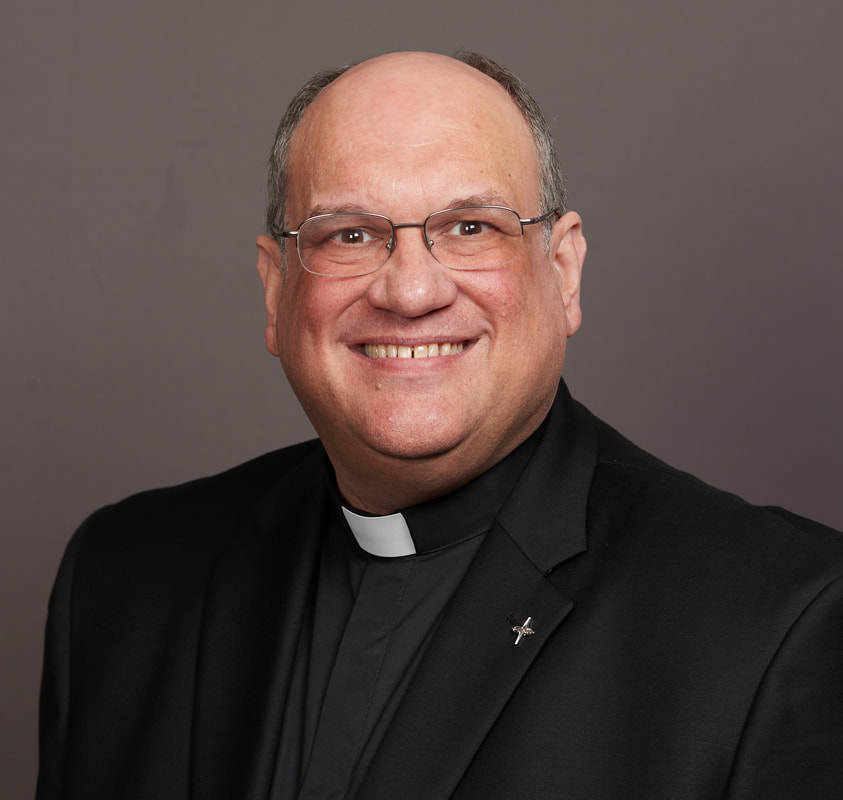
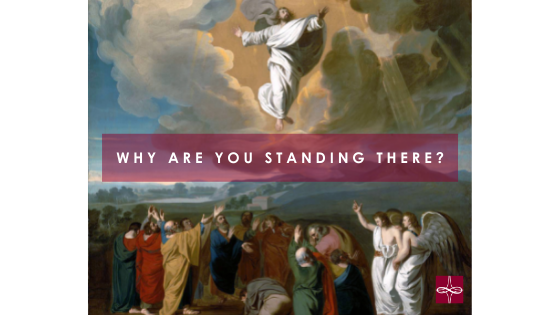

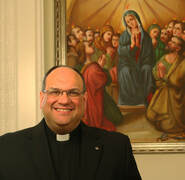

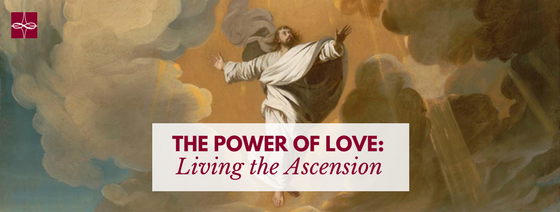

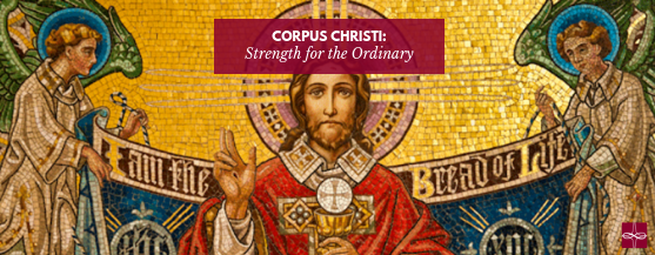

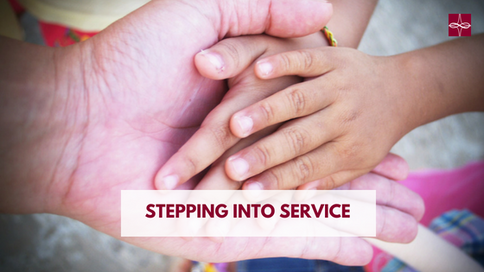
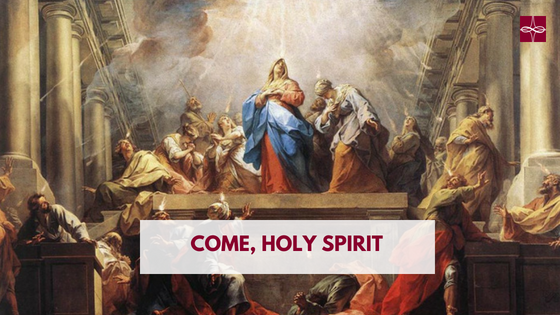

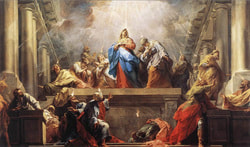
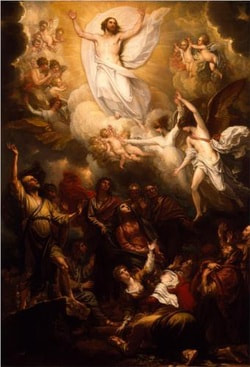
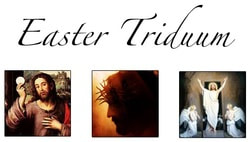
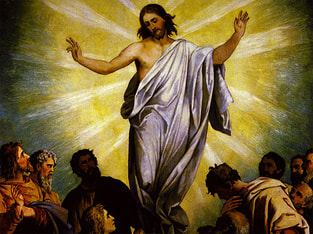
 RSS Feed
RSS Feed